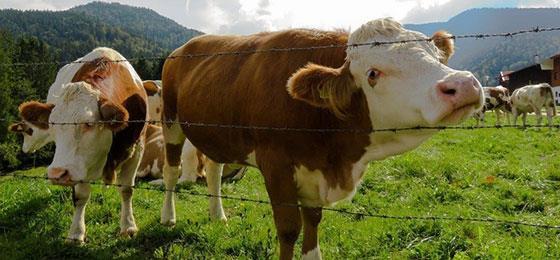Sector-specific effects of economic growth on methane emissions
10.12.2019
Economic growth led to an expansion of economic activity across all industry sectors. In livestock farming, the manufacturing and public administration sectors, however, growth was also accompanied by a tangible reduction in emissions per unit of goods (methane intensity). Economic growth did not lead to a strong increase in per capita emissions in these sectors, whereas in sectors where methane intensity had not improved, economic growth led to a substantial increase in emissions. These results suggest that emission targets and economic growth are more compatible in sectors where there is potential to improve methane efficiency.
Ratification of the Kyoto Protocol by countries with binding greenhouse gas reduction targets has not noticeably improved methane intensity in production and has even led to an increase in consumption-based methane emissions in certain sectors, particularly agriculture. This suggests that in countries with a greenhouse gas emissions cap, more methane-intensive products from trading partners are being imported without any restrictions. For this reason, climate accords should include all countries or, should that prove impossible, explicitly take account of emissions that are imported indirectly via internationally traded goods.
The study results show that methane emissions vary between sectors, and they differ from CO2 emissions in many respects. This suggests that different greenhouse gases require different regulations, which could result in more specific policies and facilitate international collaboration on reducing emissions.
